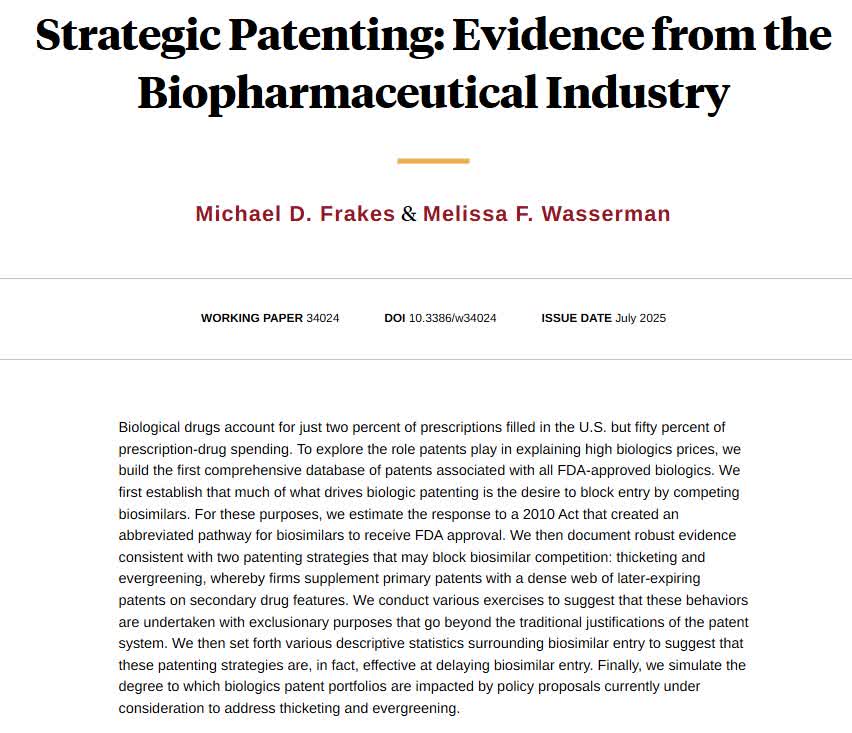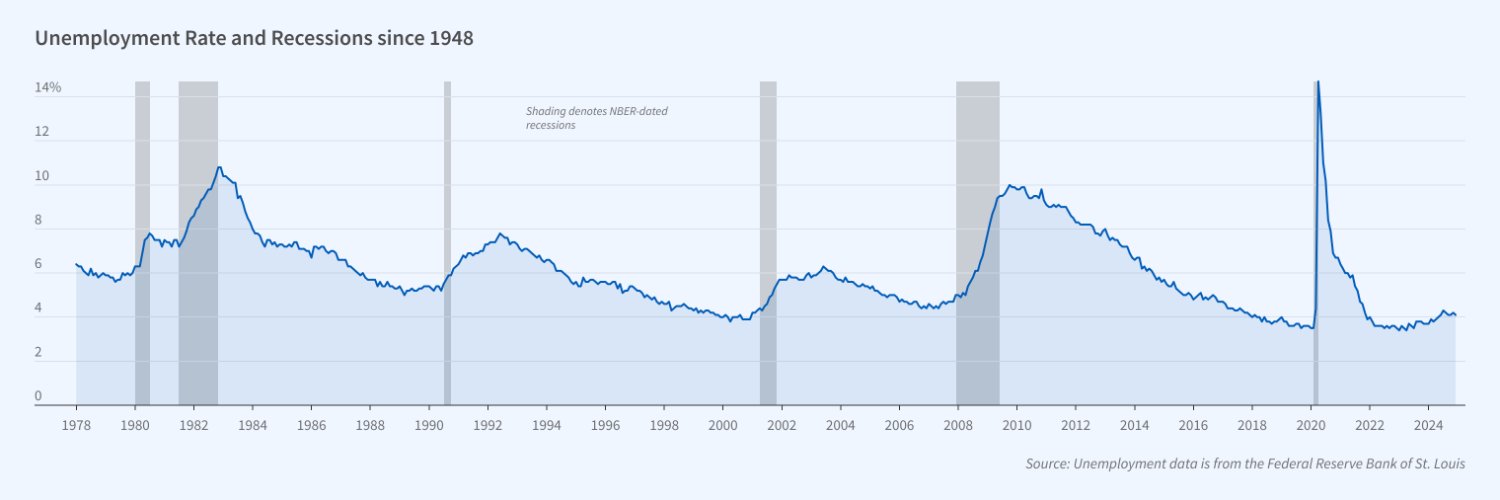
NBER
@nberpubs
The National Bureau of Economic Research is dedicated to conducting and disseminating nonpartisan economic research.
Assessing the motivating effect on blood donation of matching each attempt to donate with a charitable contribution pledge for children in developing countries, from Gary Charness, Ramon Cobo-Reyes, Nicola Lacetera, Juan A. Lacomba, Francisco Lagos, @Mario_Macis, Juliette…
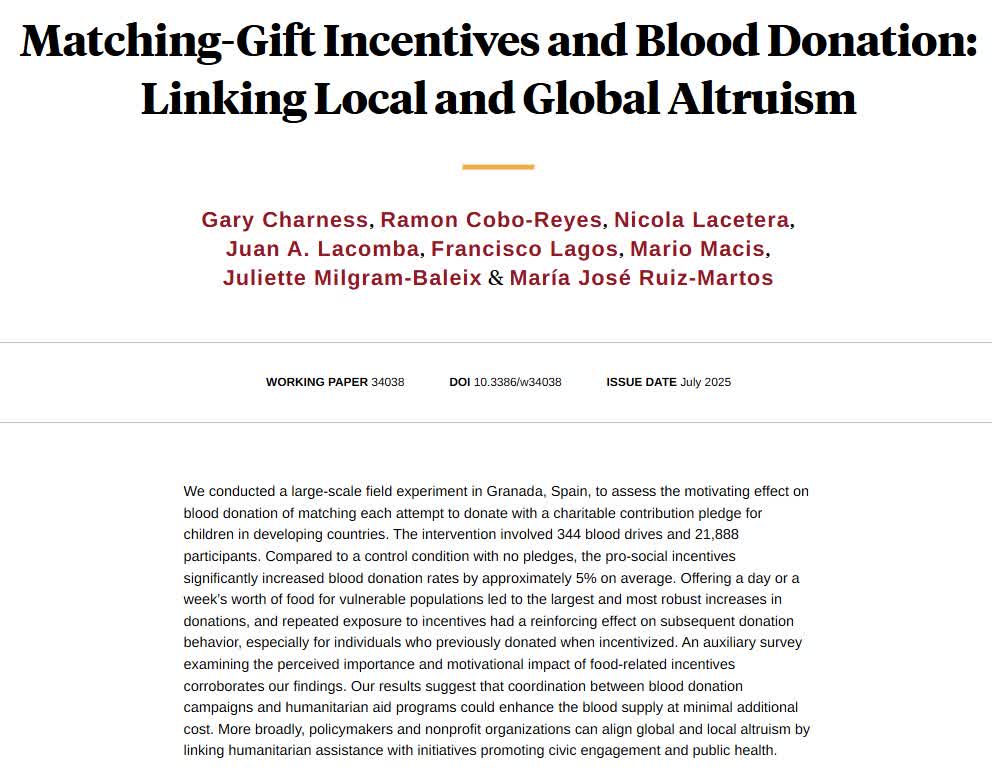
An unconditional cash transfer improved parenting quality and investments in children, but did not appear to improve children's outcomes in the short-term, from @pat_k_krause, @elizabethrds, @smilleralert, @alexbartik, @dbroockman, and @evavivalt nber.org/papers/w34040
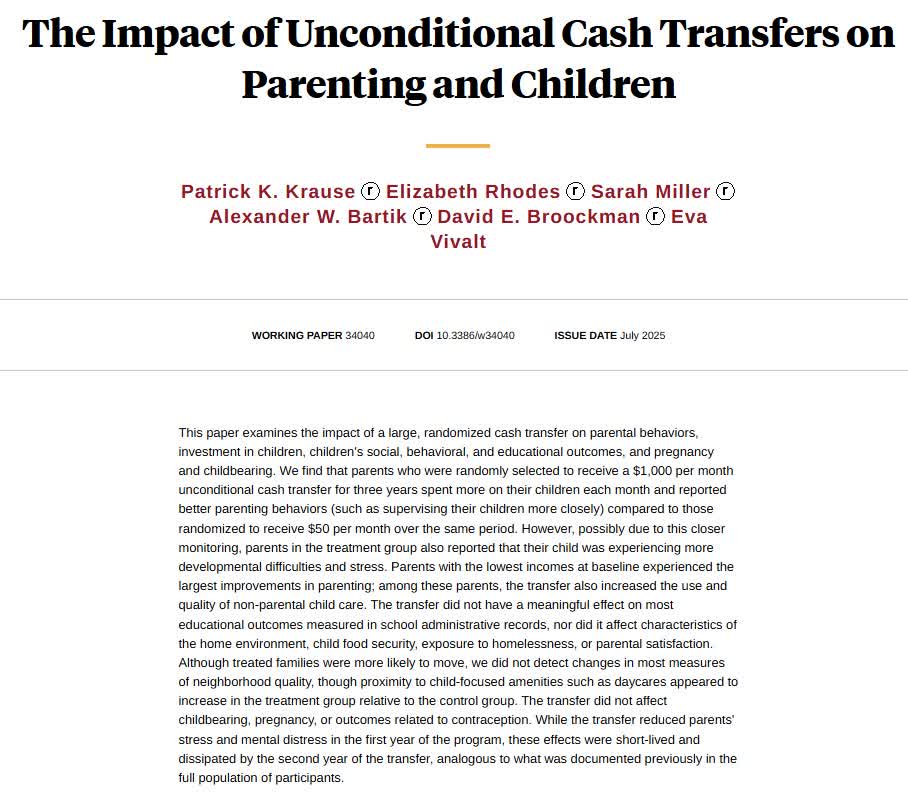
Open call for applications, PhD Student Workshop on Climate Finance. Conference to be held in Cambridge, MA on October 9, 2025. Submit applications by 11:59pm EDT on August 7, 2025. More information: nber.org/calls-papers-a…
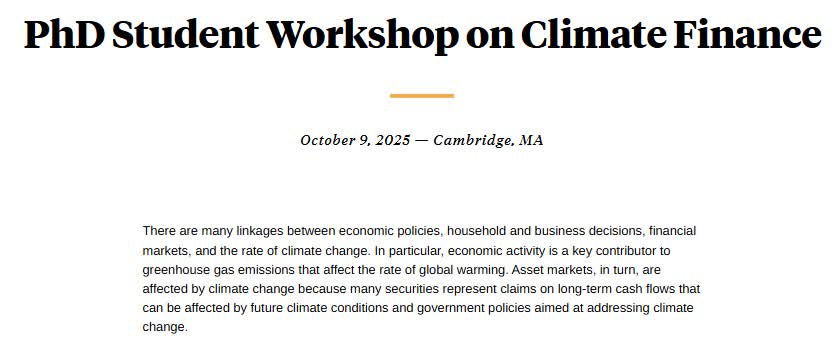
Like other industries, "complements" are merging in healthcare. Most physicians are now hospital employees. Associated prices increase with measures of foreclosure and recapture, from @zackcooperYale, @stuartcraig, Aristotelis Epanomeritakis, @matthewgrennan, Joseph R. Martinez,…
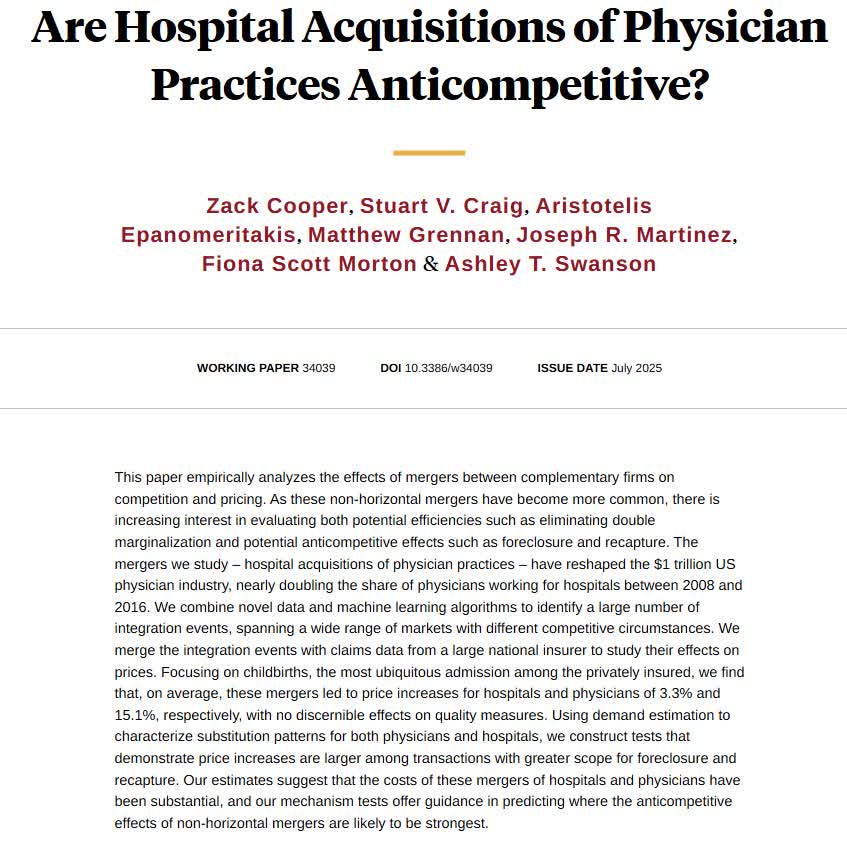
Measuring international power stemming from trade and investigating the geopolitical consequences and strategic causes of such power, from @ErnestLiuEcon and @david_yang nber.org/papers/w34006
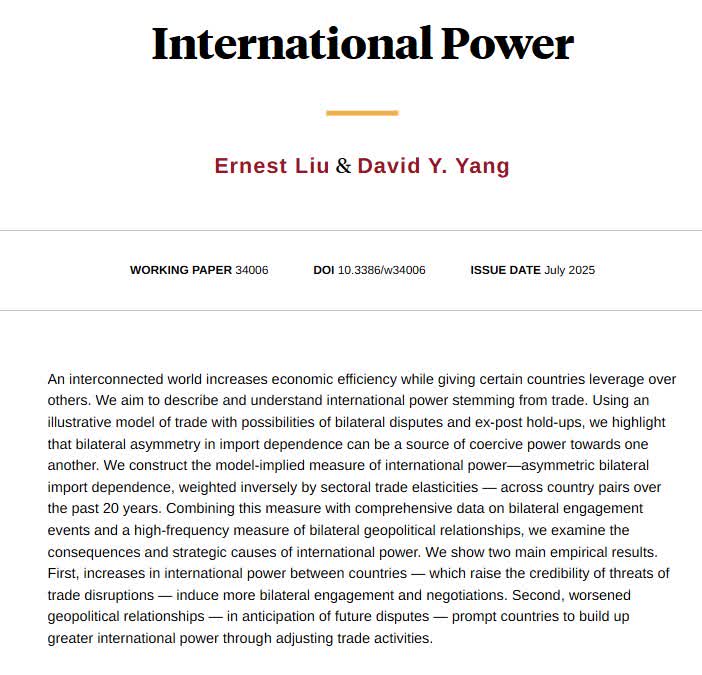
N. Gregory Mankiw, Robert M. Beren Professor of Economics at Harvard University, presented the 2025 Martin Feldstein Lecture on "The Fiscal Future." youtube.com/watch?v=B916t3…
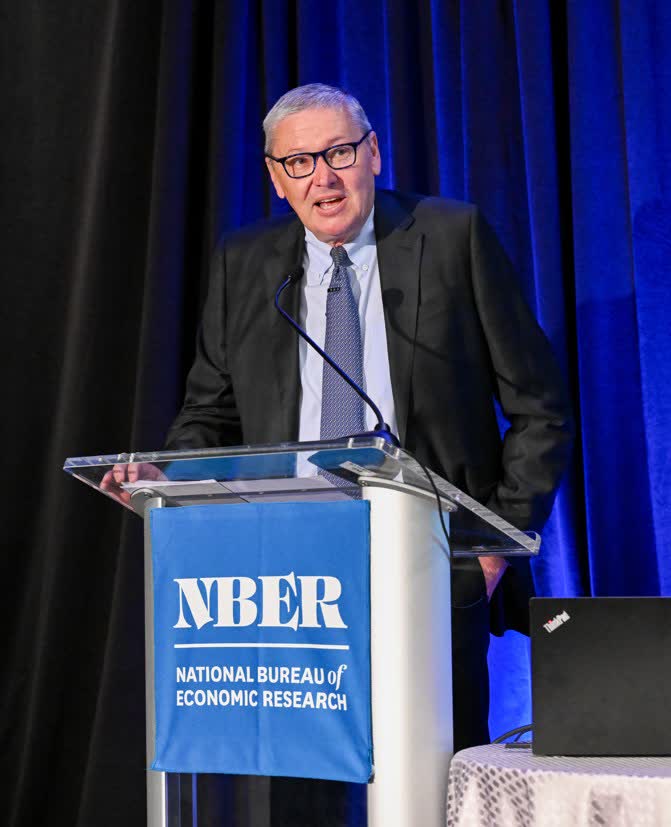
Nursing homes increase the quantity and quality of labor inputs, reduce admissions, increase temporary discharges, and improve patient care in response to central quality inspections, from Yiqun Chen and @MarcusDillender nber.org/papers/w34037
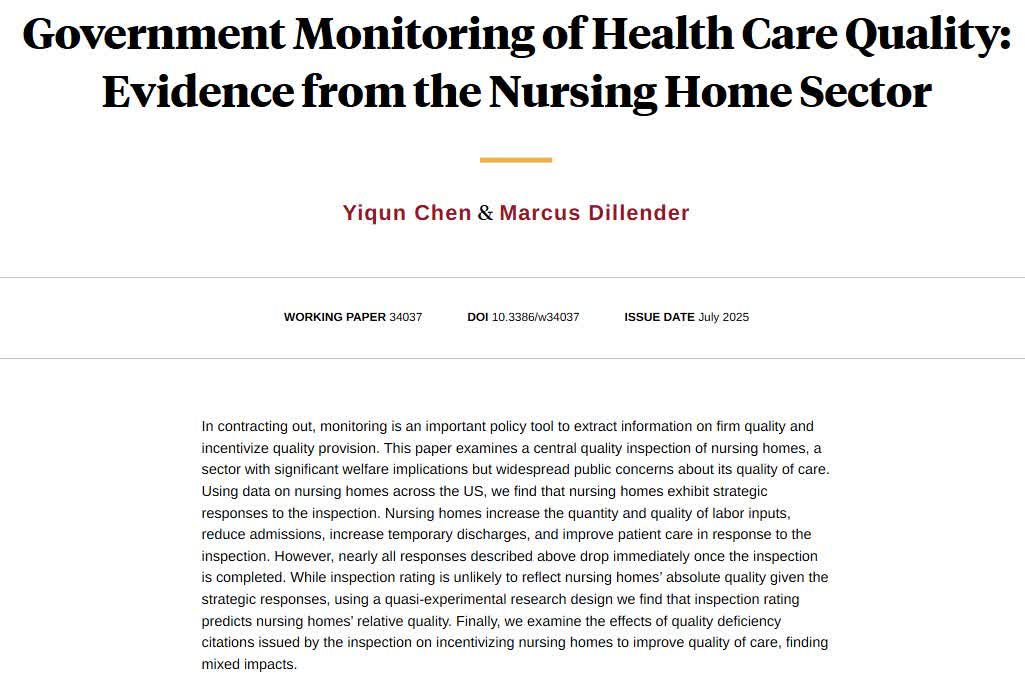
US tariffs shocked markets on April 2, 2025. Stocks fell and the dollar slipped following. Surprise effects were largest—possibly due to trade shifts and invoicing practices, from Felipe Benguria and Felipe Saffie nber.org/papers/w34036

Studying how authorities should allocate resources under uncertainty finds that adaptive priority mechanisms implement the optimal allocation, dominating priority and quota policies, from Oğuzhan Çelebi and @joel_flynn nber.org/papers/w34035
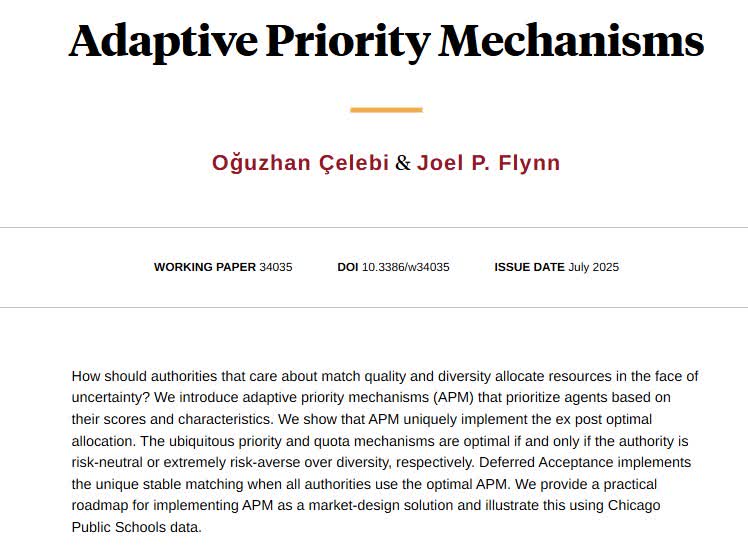
Modeling computers and AI as cognitive tools provides a lens to interpret evidence on inequality, workflows, and teams, from @professor_ajay, @joshgans, and @avicgoldfarb nber.org/papers/w34034
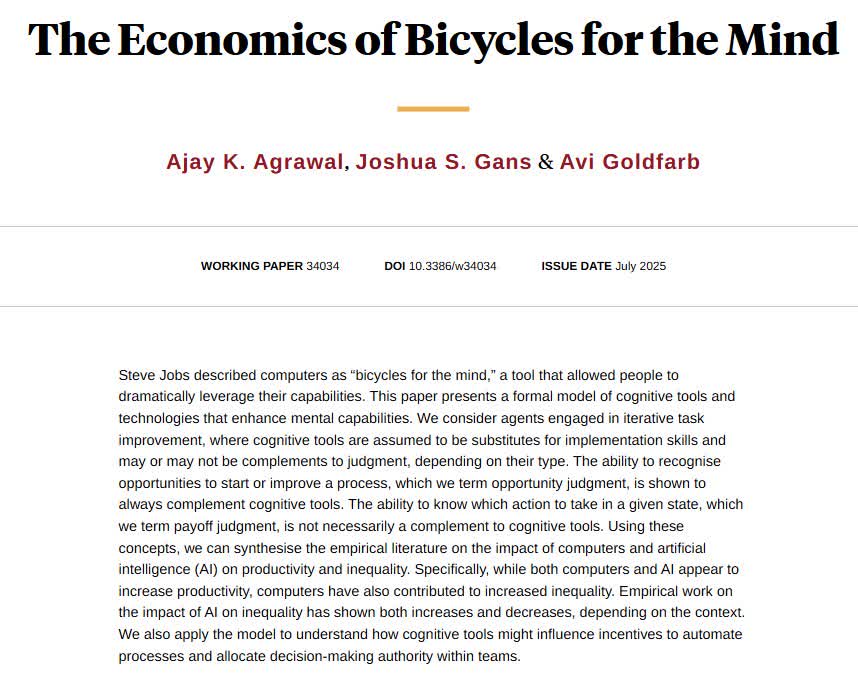
California's $20 fast food minimum wage reduced employment by 3.2 percent (roughly 18,000 jobs) over the first year since its enactment, from @jeffreypclemens, Olivia Edwards, and Jonathan Meer nber.org/papers/w34033
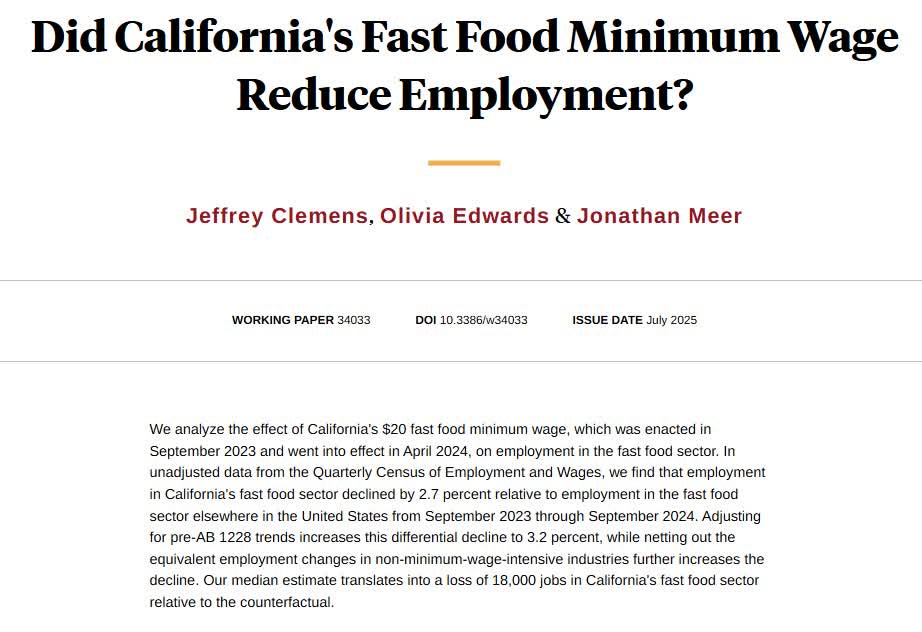
State hospital regulations that required the provision of breastfeeding support reduced infant mortality. Largest mortality improvements among infants born medically vulnerable, from @EmilyCLawler and Meghan M. Skira nber.org/papers/w34032
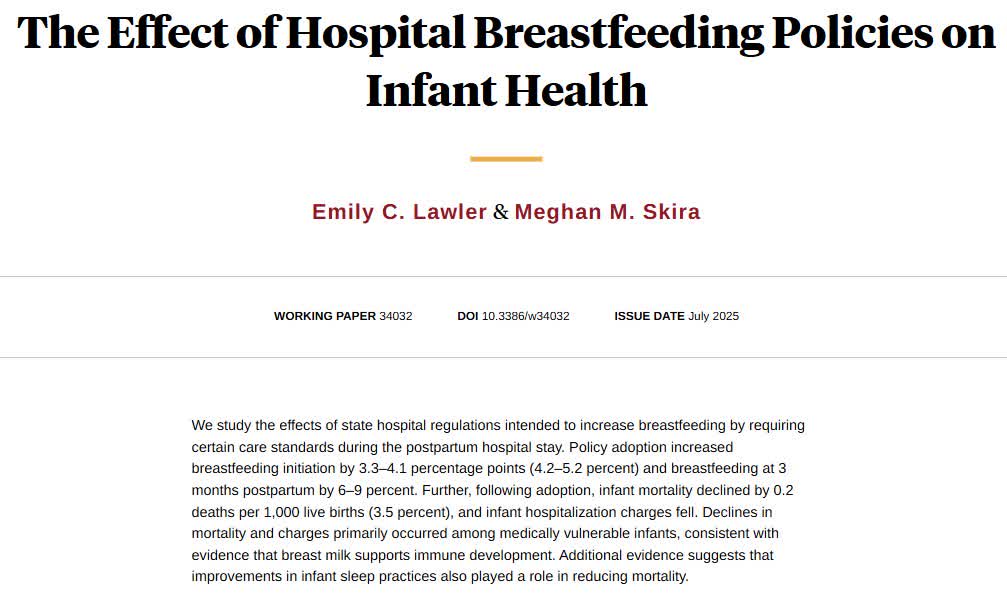
Outlining key criteria for evaluating experimental measures, and connecting those criteria to the selection of experimental parameters across various contexts, from @snowberg and @lyariv nber.org/papers/w34031
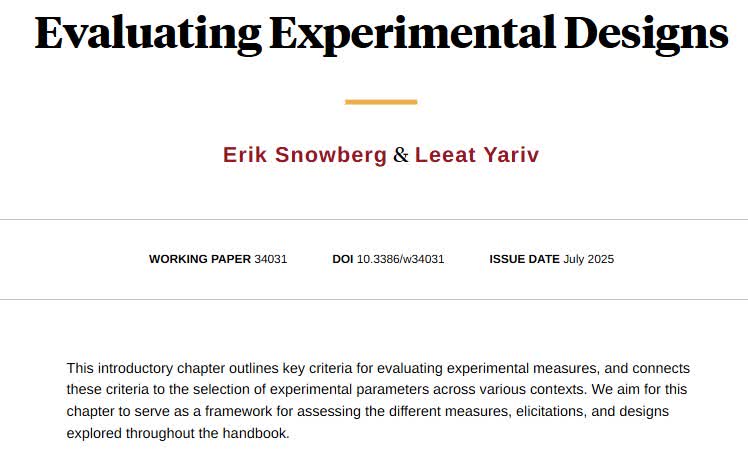
Finding an increase in consumer welfare due to the adoption of the out-of-state license reciprocity for physicians, from Yun taek Oh and Morris M. Kleiner nber.org/papers/w34030
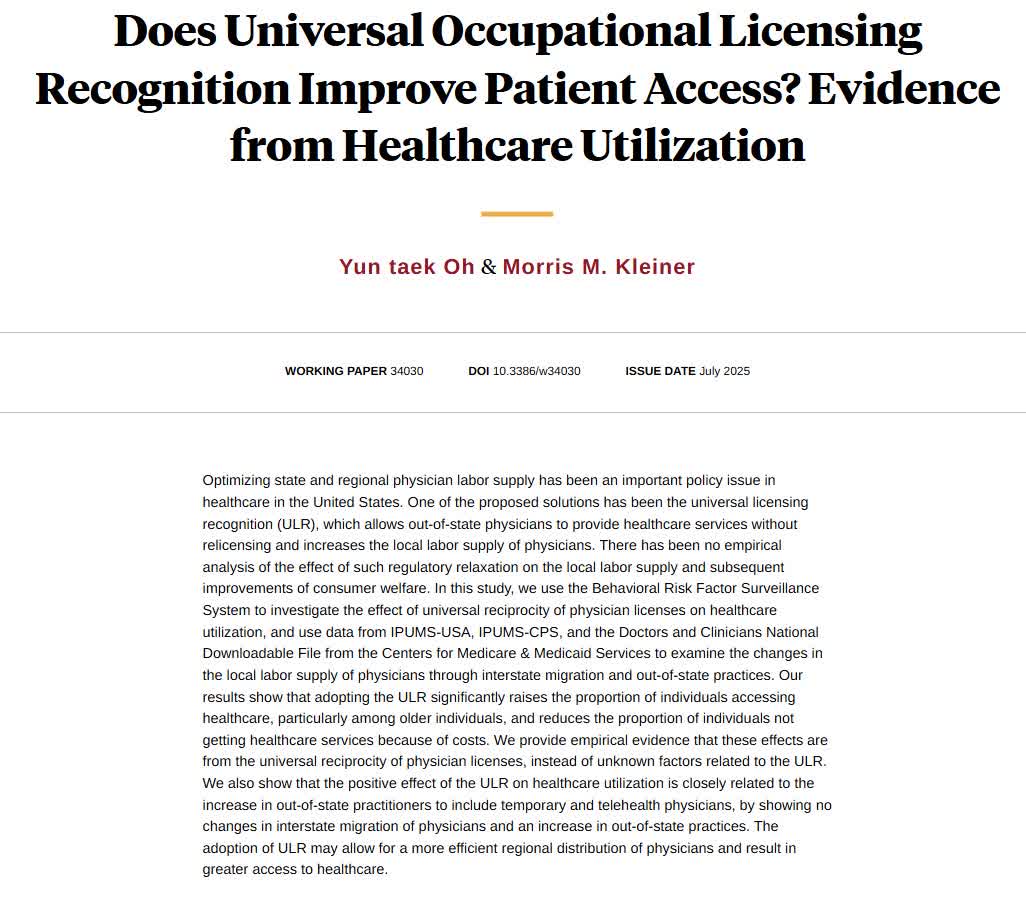
Studying why some cities thrive while others decline finds that early industrial specialization lowers long-run productivity—a dynamic trade-off at the heart of place-based policy, from @StephanHeblich, Dávid Krisztián Nagy, Alex Trew, and Yanos Zylberberg nber.org/papers/w34029
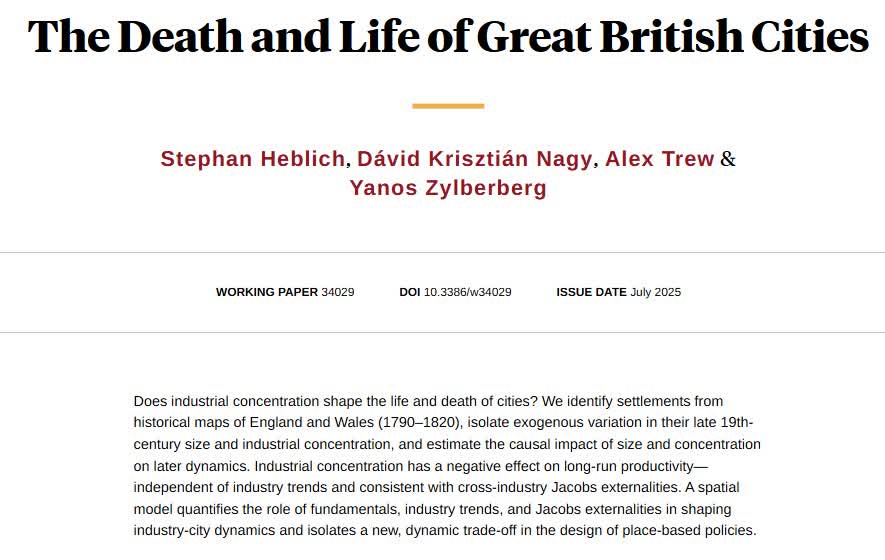
Presenting a new model of competition between digital media platforms with targeted advertising, from @jdikatz and @huntallcott nber.org/papers/w34028
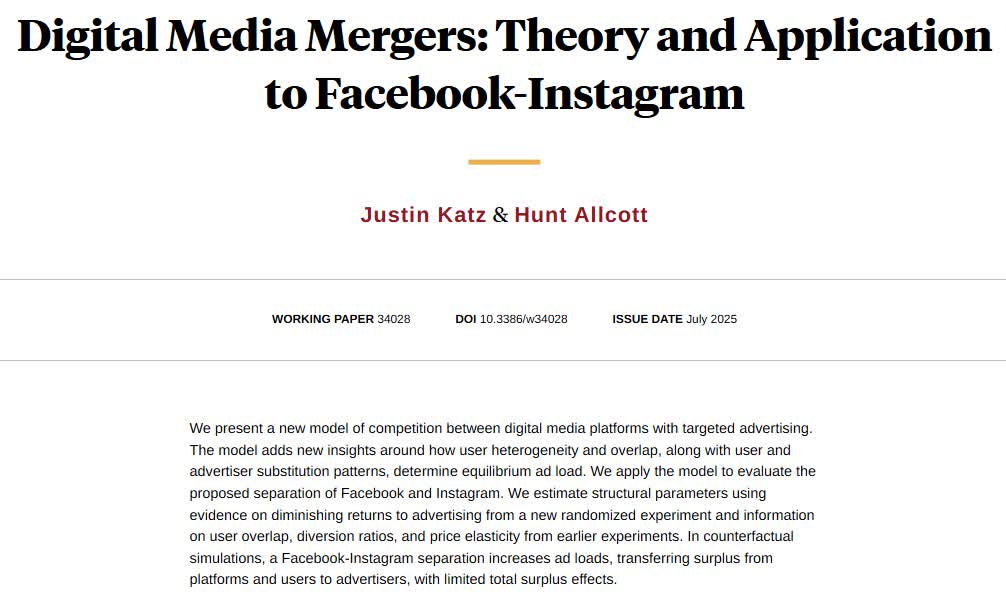
Providing a quantitative theory of credit scores based on hidden information to understand their role in inequality over the life cycle, from Satyajit Chatterjee, Dean Corbae, Kyle P. Dempsey, and José-Víctor Ríos-Rull nber.org/papers/w34027
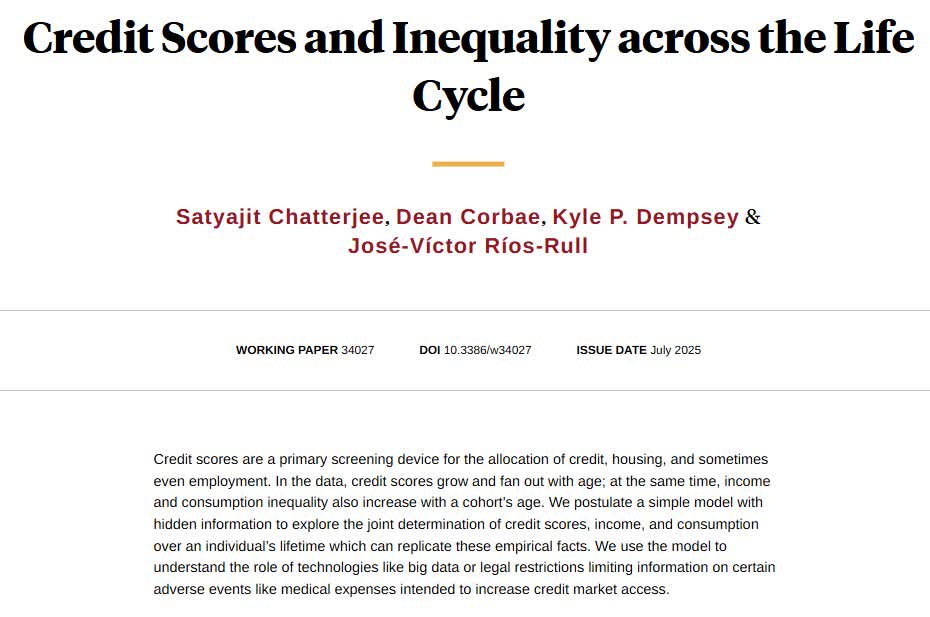
Certificate-of-Need laws reduce competition but still may not help hospital finances, from @Courtemanche_CJ and Joseph Garuccio nber.org/papers/w34026
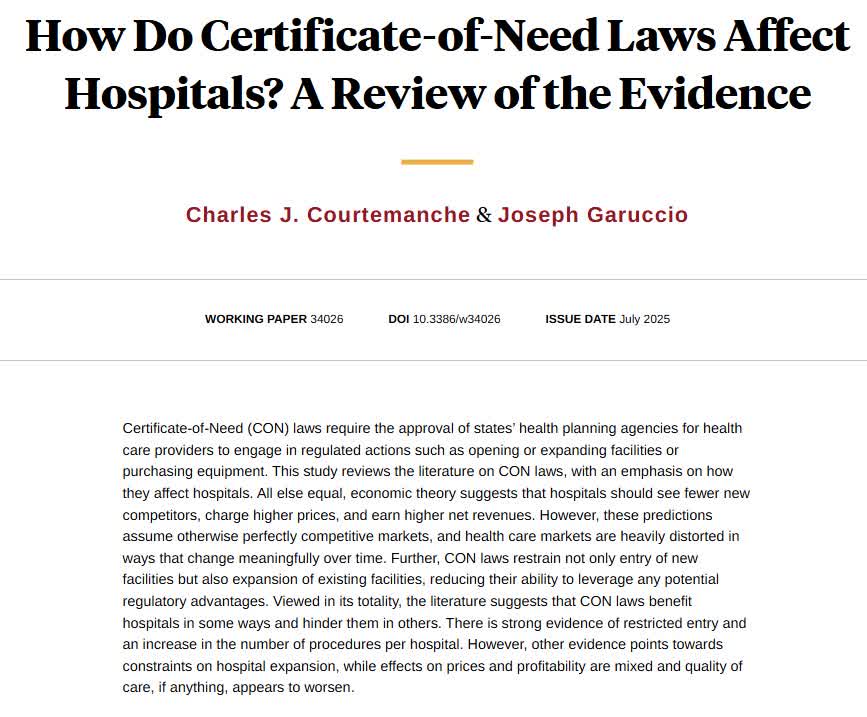
Cookie banner design matters for privacy choices, but browser-level settings improve welfare far more than better banners or defaults, from Chiara Farronato, @AndreyFradkin, and @TesaryLin nber.org/papers/w34025
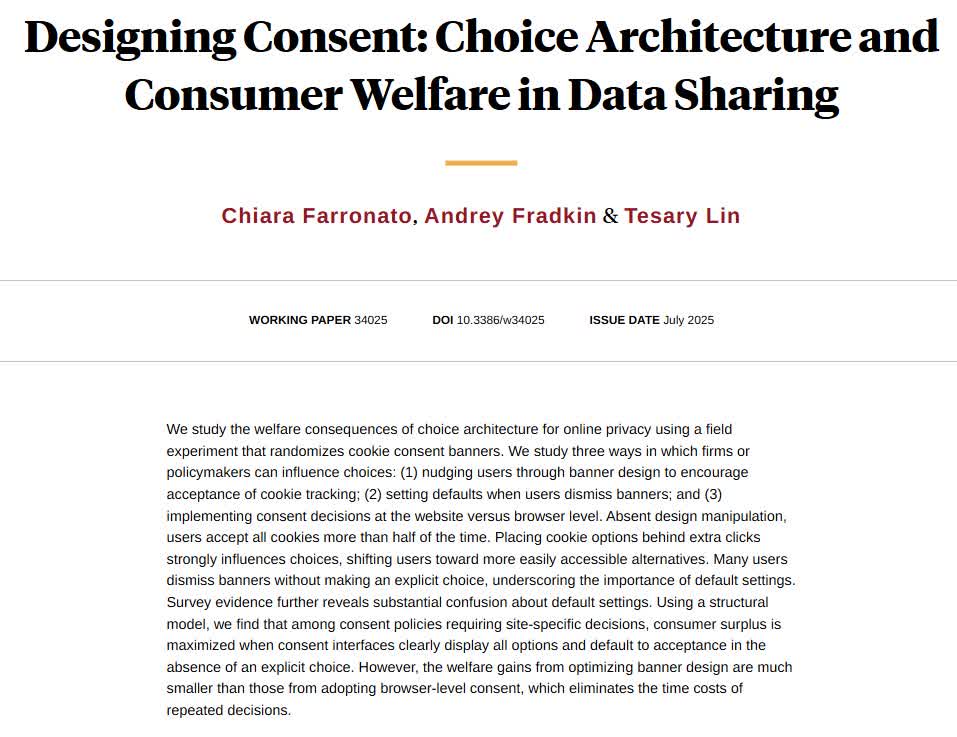
Building the first known database of biological drug patents to find robust evidence of strategic patenting practices by biologics manufacturers, from @MichaelFrakes2 and @MelissaWasserma nber.org/papers/w34024
